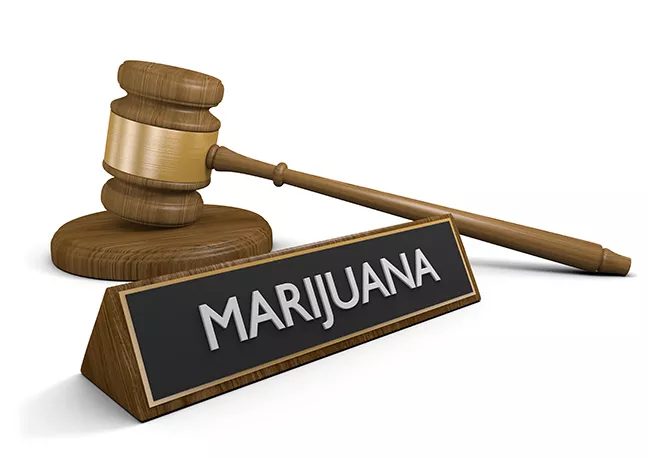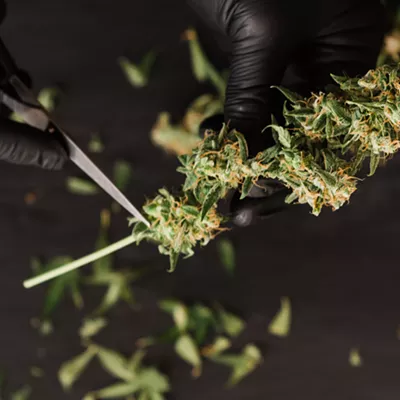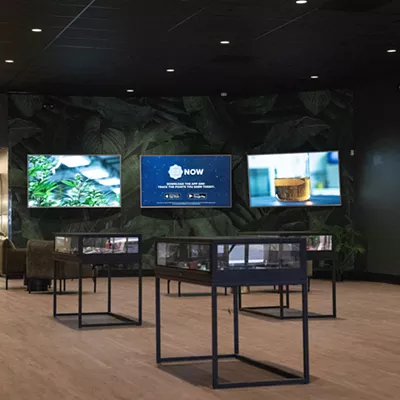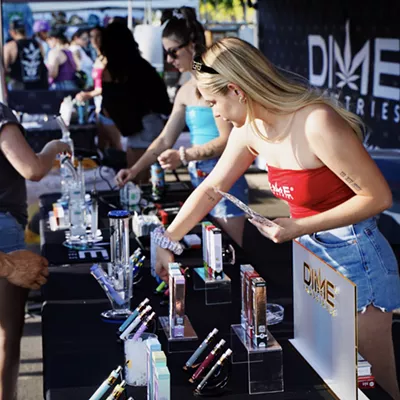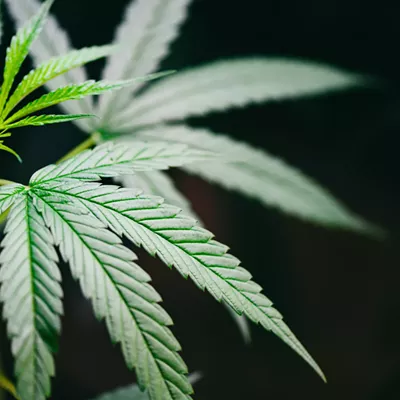The Arizona Dispensaries Association announced their plans last week for a 2020 ballot initiative to legalize adult-use cannabis, March 20. ADA President and Harvest of Arizona CEO Steve White announced Strategies 360, a PR firm that successfully led 2014 legalization efforts in Alaska, will run Arizona's initiative.
Far from a list of components in the initiative many people may have expected, White told attendees of the meeting that the ADA has prepared a draft, but the final language of the document will depend on polling of issues pertinent to stakeholders.
"We want to be really strategic about conversations we have with different types of stakeholders before we settle on language," White said. "That's the mistake we made last time."
White made the announcement at a Marijuana Industry Trade Association event run by Director Demitri Downing. Attendees to the meeting pay a fee to hear about the latest news in the industry.
"The news of the day is that there's a $5 million to $10 million campaign dedicated to a 2020 initiative," Downing said. "It's going to be on the ballot and the people are going to be able to decide."
So far polling has included some softball issues like testing, which intuitively most people would prefer, and that's what the polls have shown, White said. Other issues, like criminal justice reform for cannabis crimes and expanding the number of dispensary licenses, may be tougher to figure out.
"We would all like to right a lot of wrongs," White said. "But we have to be cognizant of the fact that if we get overly aggressive, people will still be going to jail for simple marijuana-related offenses, and that's not acceptable."
White said the ADA's role at this point is to step back and let the people decide what's most important. It seems that, as the state's largest representation of dispensaries, the ADA is most interested in supporting an initiative that will pass, as opposed to their ideal scenario.
Though there's still a lot of time between now and voting on a final initiative, current prospects look hopeful. Crafting an initiative that polls well with potential voters sounds like a solid strategy for getting the votes needed to pass on the ballot.
However, with so much time comes the possibility for hurdles, and we're used to seeing curve balls in Arizona cannabis. The Arizonans for Responsible Drug Policy led a successful prohibition campaign in 2016, and there's a non-zero chance they can do it again.
One member of the ARDP in particular has been having a tough time defending her decision to prosecute a cardholder for possession of cannabis concentrates. The day before White announced the 2020 initiative, the Arizona Supreme Court held oral arguments on State v. Jones.
Yavapai County Attorney Sheila Polk, co-chair of the ARDP, prosecuted cannabis patient Rodney Jones in 2013. Jones served two-and-a-half years for the "crime." When his appeal failed in the Appellate Court, the cannabis industry rushed to his defense.
Leading up to the Supreme Court hearing, several dispensaries have donated funds to hire Jones a new attorney and write legal documents in support of his case.
Arizona Attorney General Mark Brnovich rescinded his support for Polk when his office received criticism for submitting a statement that agreed the 2010 Arizona Medical Marijuana Act did not legalize cannabis concentrates in October. They pulled the statement.
The hearing on March 19 saw Yavapai County prosecutor Benjamin Kreutzberg standing in for Polk. He defended the county attorney's stance that the AMMA did not legalize anything but the leaves of the plant.
Why Polk refused to argue her own case is anyone's guess, all the more mysterious considering her media appearances leading up to the hearing.
Based on the judge's questioning during the hearing, it appears the court is leaning in favor of legal extracts.
"It seems to me the questions were pretty clear," said Alex Lane, criminal justice attorney and president of Cave Creek dispensary. "They seemed to favor us. There weren't any questions that made me nervous."
Lane filed an amicus brief on behalf of his client Jennifer Welton, who administers concentrates to her 8-year-old son Zander, and even submitted a signed confession as a narcotics dealer when he heard of Jones' conviction.
Oral arguments hinged on whether voters realized they legalized concentrates in 2010. Kreutzberg appeared to struggle answering. Certainly, the judges were more pointed of questions toward Kreutzberg than Jones' lawyer Robert Mandel.
"It is a very hard position to defend," Lane said.

